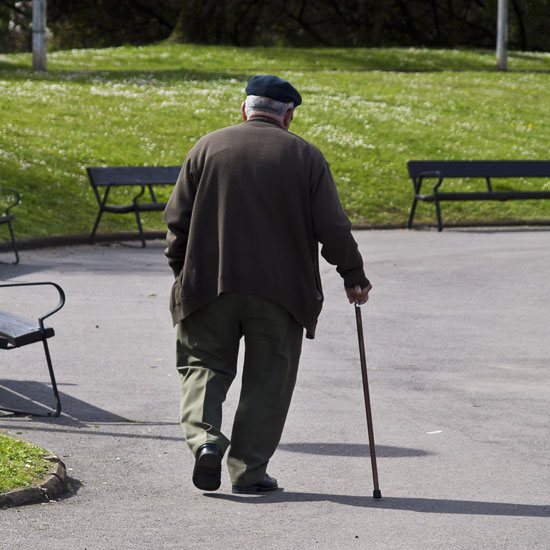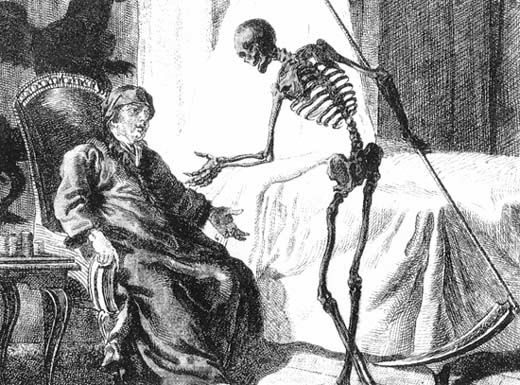Few generations in the history of civilization have shown more promise in their youth but been more of a disappointment in their adulthood and aging than my generation, the “Boomers,” spanning the years from 1944 to 1964.
We started a counter-cultural movement, only to sell out en masse. We set out to change the culture, only to generate an increasingly reactionary backlash beginning epitomized by Ronald Reagan and Bush Senior, followed by Bush Junior, and now the miasmic Donald Trump, interrupted by the Clinton and Obama interregnums.
The founder of the Utne Reader, Eric Utne, wrote recently about how much a young Native American man moved him when he said, “You baby boomers have forgotten who you are. It’s time to step back up and finish what you started.”

With all due respect to Mr. Utne, I don’t think the vast majority of my generation ever knew who we were. Why else would we be spending our retirements in a “self-care” and “wellness” haze, having tried every mind-altering substance and following every self-proclaimed guru to come down the pike?
As Utne wrote, many of us “believed that we were living at the dawn of a new age and that the world was getting more democratic, just and free through the power of love.” That sounds risible now, and is heartbreaking as America sinks deeper into the muck every week.
Let’s be honest. The New Age movement has become a multi-billion-dollar industry of life-coaches, meditation teachers and retreat centers, practicing homogeneity while preaching “diversity.”
The children and grandchildren of the Boomers became, in the main, cynical by 17, wanting nothing more than to PAARTAY! They gave up on changing society as soon as they reached the age of moral consent, years before they could legally drink.
The maskless mass gatherings and massive house parties of 500 or more during a pandemic–these, not the Black Lives Matter protests fading into memory as the Feds snatch and grab protestors into unmarked vans–are the true legacy of my generation. ‘I don’t care about myself; why should I care about you?’ is what many young, raging nihilists feel in a society and world whose future looks as bleak as the backside to the moon to them.
If I’m being hard on my generational compatriots, it’s because the true things we had to offer in our youth—a radical perspective on this culture and a passionate innocence of spirit—were too readily surrendered conforming to what we knew was a rotten society. America’s “values” had been painfully exposed by the Vietnam War and a MAD (Mutually Assured Destruction) arms race to build enough thermonuclear weapons to reduce the earth to radioactive ashes many times over.
Conservatives perceived the threat that ‘freaks,’ as we called ourselves, posed to “traditional American values.” Unlike us, they took the rejection of materialism, militarism and sexual mores seriously, and have been waging an economically and politically successful war against our brief burst of counter-culturalism every since.
I sympathize with Eric’s angst, but his prescription, “hope dies, action begins,” is as hollow as the hippie movement then, and white kids shouting “Black Lives Matter” now. (Why, more than 50 years after MLK and Malcolm X, is the phrase even necessary? The very saying marks a regression, not a progression of consciousness.)
Movements are inherently shallow, and legal redress, while necessary, does not imply social progress. Besides the fundamental premise of the countercultural movement remains facile, and false.
Utne proclaims, “Climate chaos, species extinction, mass migration and global conflict [much less systemic racism and gross economic disparity] are inevitable consequences of the techno-industrial system itself.” Ah yes, the fault still lies with “the system,” not in ourselves.
Stuck in the 60’s, he adds, “The hippie back-to-the-land movement, combined with grass roots political organizing, really was the way to go…we need a hyper-local Green New Deal.”
Egad, just as non-locality is proving valid and viable in physics, consciousness and culture, the aging hippies of my generation are calling for “hyper-locality.” It’s proof that hope and despair are just two sides of the same coin, and the old freaks can’t help but continue to flip it until they flip themselves and the rest of us out.
The false premise is the same now as it was then: “The techno-industrial system is the root of the problem,” rather than human consciousness and human nature. The upshot? We don’t have to change ourselves; we just need to “change the system.”

Utne concludes his piece by saying, “Some 25 years ago, a Tibetan friend told me his spiritual practice involved pondering death every day. This struck me as somewhat morbid at the time, but not so anymore. Now I, too, live with the thought of death daily.”
By “living with the thought of death” he means: “I’m not sanguine about the prospects for life on earth. I think we may even be on a path toward rapid economic collapse, climate chaos, social unrest, famine and near-term human extinction.”
Excuse me, but he completely misunderstands his Tibetan friend. The thought of death is not the actuality of death, much less an apocalyptic foreboding about the end of humankind. Indeed, such thoughts of death preclude communion with the ever-present actuality of death that comes with complete negation in methodless meditation.
An explosion of insight in the brain, and thereby human consciousness and culture, is urgently necessary, and possible. If and when it happens, it will bring about a new human being and new civilization.
Martin LeFevre
Link: https://www.nytimes.com/2020/07/24/opinion/hopeless-covid-climate.html
No comments:
Post a Comment